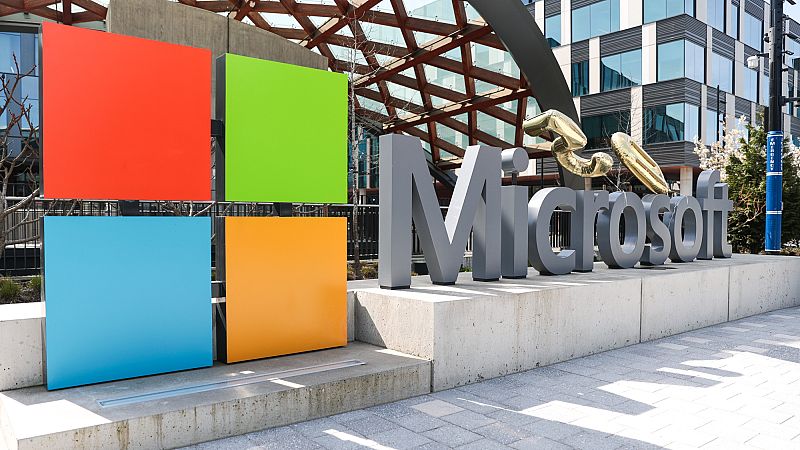Microsoft fires employees after protest in president's office

Two Microsoft employees have reportedly been fired after breaking into the company's president's office as part of a protest against the Israeli military’s alleged use of Microsoft's software.
Police arrested seven people on Tuesday after they occupied the office of Microsoft president Brad Smith.
Microsoft told CNBC that it fired the two employees due to serious breaches of its company policies and code of conduct.
Protest group No Azure for Apartheid confirmed the firings on social media platform X early Thursday morning.
No Azure for Apartheid said current and former Microsoft employees were among those arrested. Azure is Microsoft’s primary cloud computing platform.
The protesters could be seen huddled together on a Twitch livestream as officers moved in to arrest them. The video showed another group assembled outside.
During a media briefing on Tuesday afternoon, Smith said two of those arrested were Microsoft employees.
The British newspaper The Guardian reported this month that the Israel Defence Forces had used Microsoft’s Azure cloud computing platform to store phone call data obtained through the mass surveillance of Palestinians in Gaza and the West Bank.
Microsoft has said it hired an outside law firm to investigate the allegations, but that its terms of service would prohibit such use.
This is the latest protest by No Azure for Apartheid, who interrupted a speech by CEO Satya Nadella and the company's 50th anniversary celebration. Another protest last week saw 18 people arrested by police.
The group's demands include that the company cut ties with Israel and pay reparations to Palestinians.
Microsoft has said it hired an outside law firm to investigate the allegations, but that its terms of service would prohibit such use.
“There are many things we can't do to change the world, but we will do what we can and what we should,” Microsoft President Brad Smith told reporters at a media briefing following Tuesday's arrests.
“That starts with ensuring that our human rights principles and contractual terms of service are upheld everywhere, by all of our customers around the world”.
Today

